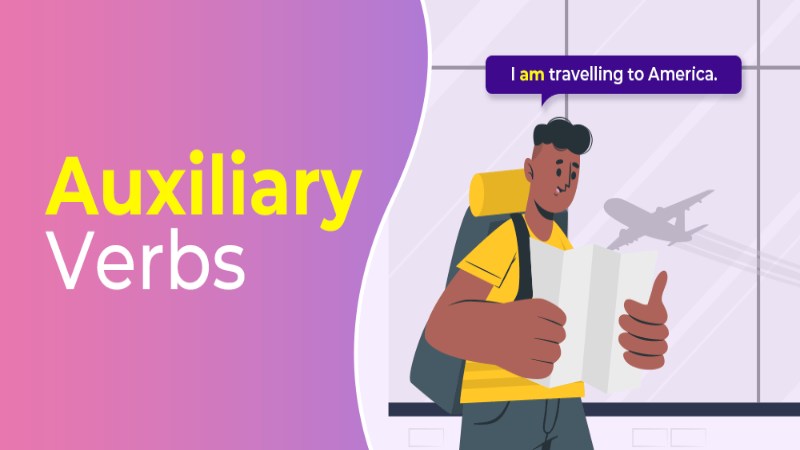
什么时候用 to + 不定式
表达目的
I’ll call her to tell her what happened. 我会打电话告诉她发生了什么事。
We’re going to the market to buy some food. 我们要去市场买些食物。
在某个形容词之后
I’m glad to know you passed the test. 我很高兴知道你通过了考试。
I’m so sorry to hear that. 听到这个消息我很难过。
在 it + be + 形容词 (+名词/代名词)
It is fantastic to be here. 来到这里真是太棒了。
It was so nice of her to say that. 她这么说真是太好了。
由动词转换成的名词之后
Nobody liked the decision to increase taxes. 没有人喜欢加税的决定。
He followed his father’s advice to stay calm. 他听从父亲的建议保持冷静。
在 (would like, would love, would hate, would prefer 等) 后
I’d love to see the views from the top. 我很想从顶部看风景。
I’d prefer to arrive a bit earlier than usual. 我宁愿比平时早一点到达。
某些特定表达式(to be honest, to tell you the truth, to begin with 等)
To be honest, I didn’t want to go to the conference. 老实说,我不想去参加会议。
We hated the trip. To begin with, the hotel was dirty and the food awful. 我们讨厌这次旅行。首先,饭店很脏,食物也很难吃。
带量词的表达式后(enough, too, too much, a lot 等)
You are too young to be here. 你太年轻了,不能来这里。
He isn’t old enough to vote. 他还不到投票的年龄。
There’s a lot to do before we can go. 在我们走之前还有很多事情要做。
在 (something, anything, someone, anyone, somewhere 等)后
There’s nothing to do in this town. 这个镇上没有什么可做的。
We need someone to help us. 我们需要有人帮助我们。
There isn’t anywhere to go. 没有地方可去。
在疑问词 (what, where, who 等)后
We don’t know where to go. 我们不知道去哪里。
He’s always telling me what to do. 他总是告诉我该怎么做。
在最高级及序数词如 (first, second 等)后
He is the best player to ever play in the UK. 他是英国有史以来最好的球员。
I was the first to arrive. 我是第一个到达的。
某些动词后
afford, agree, appear, arrange, be able to, choose, decide, deserve, expect, happen, help, hesitate, hope, learn, make, manage, offer, plan, pretend, promise, refuse, seem, teach, tend, threaten, want。
什么时候用动名词
作为名词(主语)
Cheating is very widespread in colleges today. 如今,作弊在大学里非常普遍。
Eating candy isn’t the best for your teeth. 吃糖果对牙齿不是最好的。
在介词后
I’m tired of waiting for you. 我厌倦了等你。
He’s very good at listening to people. 他很善于倾听别人的意见。
搭配某些表达式
it’s no use, it’s no good, it’s (not) worth, there’s no point (in), there’s no use (in), can’t help, have difficulty (in), have trouble, have a hard/difficult time 等
It’s no good trying to cover a lie with another lie. 用另一个谎言掩盖谎言是没有用的。
There’s no point arguing. Let’s just stop. 争论是没有意义的。让我们停下来。
We had a hard time finding our way back. 我们很难找到回去的路。
在 hear, listen, notice, see, watch 后,去表达长时间/未完成的动作或正在进行的动作
I saw them kissing in the park. 我看见他们在公园里接吻。 (表示接吻这个动作正在持续)
在 spend/waste + time/money 后
I want to spend more time playing with my kids. 我想花更多的时间和孩子们一起玩。
Don’t waste your money shopping in that store. 不要浪费你的钱去那家商店购物。
搭配某些动词
Admit, avoid, deny enjoy, fancy, feel like, finish, keep (on), imagine, involve, mind, miss, practice, recommend, regret, risk, spend, suggest.
什么时候不定式前不带 to
情态动词之后 (can, could, must, might, should, will, would)
He should be home by now. 他现在应该到家了。
I might need you tomorrow. 我明天可能需要你
在 make/let/help + 宾语 后
He made them wait outside for more than an hour. 他让他们在外面等了一个多小时。
They didn’t let us take photographs. 他们不让我们拍照。
在 had better/would rather/would sooner 后
You’d better not say anything. 你最好什么都不说。
I’d rather go out another day. 我宁愿改天出去。
在 hear, listen, notice, see 后 表达一个短暂或完整的动作
I saw them kiss. 我看见他们接吻了。 (我看到了接吻的这个动作,从开始到结束)
I heard someone shout your name. 我听到有人喊你的名字。 (我都听到了)
动词后接动名词或不定式所代表的不同意义
forget 忘记
forget to do something 忘记去做某事: 用来谈论我们需要做的事情,而我们却忘了去做。
I think forgot to lock the door when we left. 我想我们离开时忘记去锁门了。
Don’t forget to call me when you finish. 完成后别忘了给我打电话。
forget doing something 忘记做过某事: 通常用于否定句,表达”不会忘记做过”。用来谈论回忆,通常是关于我们过去做过的事情,我们不会忘记的。
I’ll never forget walking on that amazing beach for the first time. 我永远不会忘记第一次在那个令人惊叹的海滩上散步。
remember 记得
remember to do something 记得做点什么: 你先记住,然后你去做某事。用来谈论我们需要记得去做的事情。
He didn’t remember to turn off the heating after class. 下课后他不记得关暖气。
Please, will you remember to close the windows if you leave? 拜托,如果你离开,记得关上窗户吗?
remember doing something 记得做过某事: 用来谈论回忆。我们记得过去做过的事情。
I remember eating on this same chair the day I graduated. 我记得我毕业那天在同一张椅子上吃饭。
I remember mentioning the issue to Elisabeth last week. 我记得上周向伊莉莎白提到过这个问题。
try 尝试
try to do something 尝试做某事:当我们尝试做某事时,我们会努力下功夫去实现某一件事情,最终有可能会做得成也有可能会做不成。
Could you please try to be a bit less rude? 你能试着少一点粗鲁吗?
I’ll try to convince him, but I’m not sure that’s going to change anything. 我会努力说服他,但我不确定这会改变什么。
try doing something 尝试做某事:当我们想要实现某事并尝试做某些行来做作为实验,看看做了这件事之后是否有助于我们实现我们想要的结果。也就是我们尝试一种方法(它是我们可以尝试的许多方法之一)以实现某些目标。
A: “I need to sleep but I can’t.” B: “Why don’t you try drinking a glass of hot milk?” A:“我需要睡觉,但我睡不着。”B:“你为什么不试着喝一杯热牛奶?”
I can’t contact Jane. I‘ve tried calling her home number and also on her mobile, but nothing. 我联系不上简。我试过打她的家庭电话,也试过用她的手机,但都没有用。
stop 停止
stop to do something 停下来去做某事:当我们停止进行一项活动以开始进行另一项活动时使用。
We had been driving for hours, so we had to stop to eat something and go to the toilet. 我们已经开车好几个小时了,所以我们不得不停下来吃点东西和去厕所。
stop doing something 停止做某件事: 这意味着要结束我们正在做的事情。
Could you stop biting your nails? 你能不能别咬指甲了?
I need to stop smoking once and for all. 我需要彻底戒烟。
need 需要
need to do something 需要做点什么: 有必要做点什么
I need to see you immediately. 我需要马上见到你。
something needs doing 某事/某物需要被做点什么: Need+动词-ing在句子里面意义就像被动式的含意。这意味着某一些事物需要被处理。
Your car needs cleaning. (=Your car needs to be cleaned.) 你的车需要清洗。
动词匹配模式 – 用不定式还是动名词



Comments